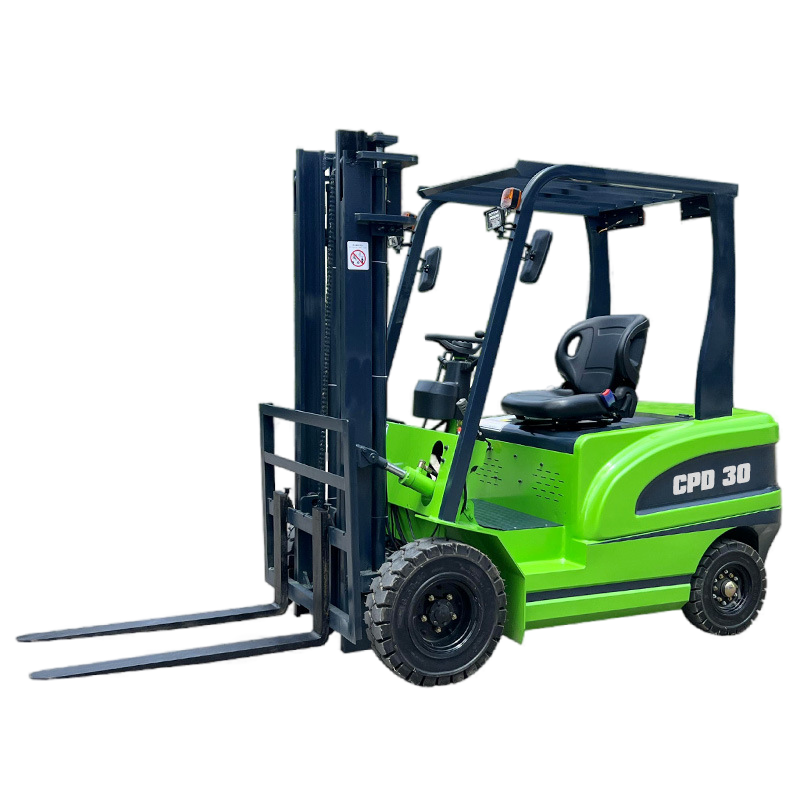Non-standard electric forklifts refer to electric forklifts that are not manufactured in accordance with unified industry standards and specifications, but are custom-designed and produced based on the specific needs of customers. The following is a detailed introduction to non-standard electric forklifts:

Characteristics
- Customized design: It can carry out personalized design on the size, load capacity, lifting height, functional configuration of the forklift according to the special needs of customers, such as working environment, cargo type, handling process, etc., so as to meet the specific operation requirements of different customers.
- High flexibility: It can adapt to various complex working scenarios and special cargo handling needs, such as narrow passages, low spaces, handling of ultra-long or ultra-wide goods, etc. Compared with standard forklifts, it has stronger adaptability and flexibility.
- Diversified functions: In addition to the basic handling functions of standard forklifts, it can also integrate various special functions, such as side shift, rotation, clamping, telescopic fork arm, shock absorption device, etc., to meet the handling and processing needs of different types of goods.
- High degree of intelligence: Some non-standard electric forklifts are equipped with advanced intelligent control systems, such as intelligent scheduling systems, automatic driving technology, cargo identification and positioning systems, etc., to realize automated operations and intelligent management, improve work efficiency and accuracy, and reduce labor costs.
Application scenarios
- Warehousing and logistics: In a multi-SKU warehousing environment with a wide variety of goods and different specifications, non-standard electric forklifts can quickly complete the inbound and outbound operations of goods through customized pallets and high-precision shelf docking systems, improving the operational efficiency of warehousing and logistics.
- Manufacturing industry: On the production line of factories, non-standard electric forklifts can realize point-to-point material handling, and accurately dock with the production rhythm with the help of sensors, providing timely and accurate material supply for the production line and ensuring the smooth progress of production. In addition, for some special production processes or equipment, special non-standard forklifts can also be customized to meet their specific material handling and operation needs.
- Cold chain and pharmaceutical industry: The temperature in cold storage is extremely low, which has special requirements for the parts and performance of forklifts. Non-standard electric forklifts are equipped with low-temperature lubrication and anti-freezing designs, which can operate stably in extremely low temperatures and ensure the safe handling of goods in cold chain environments. In the pharmaceutical industry, it is also necessary to meet the requirements of sterility and no pollution during transportation, and ensure the safety and stability of drugs through protective designs.
- Special cargo handling: For special goods that are ultra-long, overweight, fragile or irregular in shape, such as steel pipes, wood, glass, precision equipment, etc., non-standard electric forklifts can realize the safe and efficient handling of these special goods by adding extended fork arms, intelligent center of gravity adjustment devices, shock absorption devices or customizing special fixtures.
Advantages
- Improve work efficiency: Through customized design and functional configuration, non-standard electric forklifts can complete specific tasks more efficiently, reduce operation time and labor input, and improve overall work efficiency.
- Reduce operating costs: Because they can better adapt to working scenarios and cargo needs, non-standard electric forklifts can reduce equipment idle time and failure rates, and lower equipment maintenance and replacement costs. At the same time, intelligent operation and management also help reduce labor costs and logistics costs.
- Enhance operational safety: Functions and configurations designed for special operation needs, such as intelligent center of gravity adjustment, shock absorption devices, safety protection systems, etc., can effectively reduce risks during handling and ensure the safety of operators and goods.
- Adapt to the development needs of enterprises: When an enterprise's production scale expands, business processes change or the working environment changes, non-standard electric forklifts can be customized, modified or upgraded according to new needs. They have strong flexibility and scalability, and can better adapt to the development and changes of enterprises.


